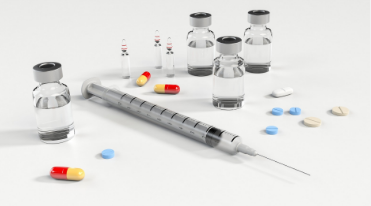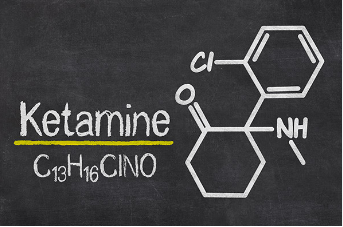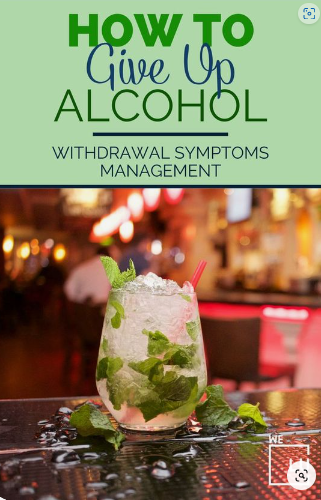What is Special K Drug?
Dissociative anesthetic Special K Drug is primarily used as an animal tranquilizer in veterinary medicine. However, because of its dissociative and hallucinogenic effects, it has also gained popularity as a recreational drug. Usually, the drug is ingested, injected, or snorted. It obstructs the brain’s glutamate receptors, which causes a sense of detachment from one’s surroundings and a warped perception of reality. It’s important to remember that Special K can have serious physical and mental side effects, especially with prolonged use or high doses, even though it may cause a euphoric and dissociative high. Individuals can make educated decisions about their drug use and, if necessary, seek the appropriate help by being aware of the effects and risks associated with Special K.
The active component of the Special K drug, ketamine, was first created as a medical anesthetic in the 1960s. It is still employed in some human surgical procedures and veterinary anesthesia. However, because of its dissociative and hallucinogenic effects, it has become more well-known as a recreational drug in recent years. The effects of Special K, which are typically snorted or injected, can last between 45 minutes and several hours, depending on the dosage and method of administration.
Special K drugs can still cause physical and psychological dependence with repeated use, despite not being as addictive as other drugs. Additionally, it can have harmful short- and long-term side effects, especially when used in high doses or combined with other substances. These negative effects include poor balance and coordination, confusion, hallucinations, delirium, and even a “K-hole,” or total unconsciousness. Additionally harmful to mental health, Special K can cause depression, anxiety, and even suicidal thoughts. Before using Special K or any other drug, people should be aware of these risks.
Special K Street Names
- K.
- Ket.
- Ketamine.
- Vitamin K.
- K-hole.
Special K Drug Side Effects
Ketamine, known as Special K, has negative psychological and physical side effects. Short-term effects include impaired motor function, confusion, and tingling or numbness in the limbs. Additionally, users may experience dizziness, nausea, and even momentary paralysis. An extended period of abuse can result in more severe side effects like memory loss, bladder issues, and liver and kidney damage. Significant psychological side effects of ketamine include agitation, anxiety, and hallucinations. It can also result in depression and possibly aid in the emergence of other mental health issues.
- Hallucinations.
- Dizziness.
- Confusion.
- Nausea and vomiting.
- Rapid heartbeat.
- High blood pressure.
- Difficulty breathing.
- Memory loss or amnesia.
- Loss of coordination.
- Numbness or tingling sensations.
- Seizures.
- Coma or death in severe cases.

Skip To:
Learn More:
Get Help. Get Better. Get Your Life Back.
Searching for Accredited Drug & Alcohol Rehab Centers Near You? Or Mental Health Support?
Even if you have failed previously, relapsed, or are in a difficult crisis, we stand ready to support you. Our trusted behavioral health specialists will not give up on you. Call us when you feel ready or want someone to speak to about therapy alternatives to change your life. Even if we cannot assist you, we will lead you wherever you can get support. There is no obligation. Call our hotline today.
FREE Addiction Hotline – Call 24/7Special K Drugs Addiction Statistics
In 2019, the Food and Drug Administration (FDA) approved using a nasal spray version of the drug as a fast-acting option for treatment-resistant depression. An increase in recreational use and availability of ketamine in recent years—particularly in 2019, coincided with the drug’s FDA approval for depression. However, despite these increases, its use has remained relatively rare, with less than 1 percent of teens and adults using the drug. The highest prevalence of recreational ketamine use—0.9 percent—was reported in late 2019.
74%
According to the Department of Justice’s National Drug Intelligence Center, individuals aged 12 to 25 accounted for 74% of the Ketamine emergency department visits in the United States in the year 2000
Source: DEA
2.3 million
According to the 2013 National Survey on Drug Use and Health in the United States, an estimated 2.3 million people aged 12 or older used Ketamine in their lifetimes, with 203,000 users in 2013.
Source: NIH
3%
In 2006, the University of Michigan’s Monitoring the Future survey showed 3% of high school seniors had used the drug at least once that year.
Source: NIH
Ketamine Drug Fact Sheet
What is Ketamine?
Ketamine is a dissociative anesthetic that has some hallucinogenic effects. It distorts perceptions of sight and sound and makes the user feel disconnected and not in control. It is an injectable, short-acting anesthetic for use in humans and animals. It is referred to as a “dissociative anesthetic” because it makes patients feel detached from their pain and
environment.
What is its origin?
Ketamine is produced commercially in a number of countries, including the United States. Most of the ketamine illegally distributed in the United States is diverted or stolen from legitimate sources, particularly veterinary clinics, or smuggled into the United States from Mexico. Distribution of ketamine typically occurs among friends and acquaintances, most often at raves, nightclubs, and at private parties; street sales of ketamine are rare.
How is it abused?
Ketamine, along with the other “club drugs,” has become popular among teens and young adults at dance clubs and “raves.” Ketamine is manufactured commercially as a powder or liquid. Powdered ketamine is also formed from pharmaceutical ketamine by evaporating the liquid using hot plates, warming trays, or microwave ovens, a process that results in the formation of crystals, which are then ground into powder.
What are the common street names of Ketamine?
- Common street names include:
- Cat Tranquilizer.
- Cat Valium.
- Jet K.
- Kit Kat.
- Purple.
- Special K.
- Special La Coke.
- Super Acid.
- Super K.
- Vitamin K.
What does it look like?
Ketamine comes in a clear liquid and a white or off-white powder. Powdered ketamine (100 milligrams to 200 milligrams) is typically packaged in small glass vials, plastic bags, capsules, and paper, glassine, or aluminum foil folds. Powdered ketamine is cut into lines known as bumps and snorted or smoked, typically in marijuana or tobacco cigarettes. Liquid ketamine is injected or mixed into drinks. Ketamine is found by itself or often combined with MDMA, amphetamine, methamphetamine, or cocaine.
What is its effect on the mind?
Ketamine produces hallucinations. It distorts perceptions of sight and sound and makes the user feel disconnected and not in control. A “Special K” trip is touted as better than that of LSD or PCP because its hallucinatory effects are relatively short in duration, lasting approximately 30 to 60 minutes as opposed to several hours.
What is its effect on the body?
A couple of minutes after taking the drug, the user may experience an increased heart rate and blood pressure that gradually decreases over the next 10 to 20 minutes. Ketamine can make users unresponsive to stimuli.
What is its legal status in the United States?
Since the 1970s, ketamine has been marketed in the United States as an injectable, short-acting anesthetic for use in humans and animals. In 1999, ketamine, including its salts, isomers, and salts of isomers, became a Schedule III non-narcotic substance under the Controlled Substances Act. It currently has accepted medical uses for short term sedation and anesthesia. In addition, in 2019, FDA approved the S(+) enantiomer of ketamine (esketamine) nasal spray version (Spravato®) for treatment-resistant depression that is only available at a certified doctor’s office or clinic. Ketamine has the potential for abuse, which may lead to moderate or low physical dependence or high psychological dependence.
Most Popular Special K Drugs FAQs
-
When was it made? special K drug 80s.
The special K drug was first developed in the 1960s as an anesthetic for humans and animals. It gained popularity in the 1980s as a recreational drug due to its dissociative and hallucinogenic effects.
-
What drug is special K? What is a special K street drug?
The dissociative anesthetic ketamine, or Special K, is frequently used in veterinary medicine. It was initially created as a human anesthetic in the 1960s, but its use was later discontinued due to its side effects.
-
Is special K drug for depression?
It has been used off-label for treating depression and other mood disorders. However, it is not an FDA-approved treatment for depression and is only used in certain cases as a last resort when other treatments have failed. Ketamine infusion therapy is administered in a controlled medical setting and is closely monitored by a healthcare professional.

Get Your Life Back
Find Hope & Recovery. Get Safe Comfortable Detox, Addiction Rehab & Mental Health Dual Diagnosis High-Quality Care at the We Level Up Treatment Centers Network.
Hotline (877) 378-4154
What Is Drugs Inc Special K?
A documentary series, “Drugs, Inc.” examines illegal drug production, distribution, and social effects. The “Special K Nation” episode focuses on the recreational use of ketamine, also known as Special K. The episode discusses the origins of the drug as well as its manufacture, distribution, and use. It also emphasizes the harm that ketamine causes to people and communities and the difficulties its use presents for the legal and law enforcement systems.
Long-Term Effects of Special K Drug (Ketamine)
Powdered ketamine is often cut with other drugs, so it’s difficult to tell the long-term effects, as interactions can be unpredictable. Consequently, the long-term effects of ketamine are varied, but they fall into several main areas. As with any anesthetic, ketamine reduces — or even eliminates — pain. It’s difficult for ketamine users to tell whether they’ve injured themselves, so they can end up hurting themselves severely. Some individuals have suffered from broken legs and effectively crippled themselves because they couldn’t tell something wasn’t right. Walking on a broken leg can result in compound fractures, skin penetration, sepsis, and severe nerve damage.
Once the effects of Ketamine have worn off, users might experience severe abdominal pain. It can also cause thickening of the bladder and urinary tract, forcing some long-term ketamine users to have their bladders surgically removed as the walls are too thick and prevent urine from passing through. Other issues include kidney problems caused by the ketamine’s interaction with the kidneys as it is reduced into its metabolites. Amphetamines should never be mixed with ketamine because they can cause high blood pressure.
Comfortable Facilities & Amenities
High-Quality Addiction & Mental Health Rehabilitation Treatment
Rehab Centers TourRenowned Addiction Centers. Serene Private Facilities. Inpatient rehab programs vary.
Addiction Helpline (877) 378-4154Proven recovery success experience, backed by a Team w/ History of:
15+
Years of Unified Experience
100s
5-Star Reviews Across Our Centers
10K
Recovery Success Stories Across Our Network
- Low Patient to Therapist Ratio
- Onsite Medical Detox Center
- Comprehensive Dual-Diagnosis Treatment
- Complimentary Family & Alumni Programs
- Coaching, Recovery & Personal Development Events
Special K Drug (Ketamine) Dependence
Ketamine dependence is the term used to describe a person who becomes dependent on the dissociative anesthetic drug ketamine, which is frequently used in medical settings. Dependence happens when the body and brain grow accustomed to the drug’s presence and depend on it to function normally. This sets up a vicious cycle of withdrawal, where trying to stop using the drug causes unpleasant physical and psychological symptoms, and tolerance, where higher and higher doses are needed to have the same effect.
Dependence on ketamine can harm one’s physical and mental well-being, financial situation, social life, and legal standing. Additionally, it may lead to a drop in performance at work, school, or both and a general decline in quality of life.
Ketamine dependence is characterized by a strong urge to use the drug, difficulty in restraint, and persistence despite side effects. Ketamine dependence can be difficult to break without medical help because withdrawal symptoms can be uncomfortable and dangerous. Patients frequently combine therapy, medication, and the support of loved ones to treat ketamine dependence.

World-class, Accredited, 5-Star Reviewed, Effective Addiction & Mental Health Programs. Complete Behavioral Health Inpatient Rehab, Detox plus Co-occuring Disorders Therapy.
CALL (877) 378-4154End the Addiction Pain. End the Emotional Rollercoaster. Get Your Life Back. Start Drug, Alcohol & Dual Diagnosis Mental Health Treatment Now. Get Free No-obligation Guidance by Substance Abuse Specialists Who Understand Addiction & Mental Health Recovery & Know How to Help.

Withdrawal Symptoms of Special K Drugs
The severity of Special K (ketamine) withdrawal symptoms can vary depending on the amount and length of use and personal factors like age, health, and genetics. Following stopping the use of Special K, common withdrawal symptoms could include:
- Ketamine cravings.
- Swings in mood and irritability.
- Anxiety and agitation.
- Insomnia and sleeping problems.
- Lethargy and exhaustion.
- Chills and sweat.
- Dizziness and headaches.
- Nausea and diarrhea.
- Cognitive impairment and attentional difficulties.
- Decrease in weight and changes in appetite.
Experience Transformative Recovery at the We Level Up Treatment Center.
See our authentic success stories. Get inspired. Get the help you deserve.



Start a New Life
Begin with a free call to an addiction & behavioral health treatment advisor. Learn more about our dual-diagnosis programs. The We Level Up treatment center network delivers various recovery programs at each treatment facility. Call to learn more.
- Personalized Care
- Caring Accountable Staff
- Comfortable Amenities
- Licensed & Accredited
- Renowned w/ 5-Star Reviews
We’ll Call You
Treatment for Ketamine Addiction
How long does ketamine treatment last? First and foremost, if you think a loved one is abusing ketamine, you should research the drug and its associated addiction to understand better what you loved one needs. Next, you must plan an intervention to provide your loved one with options to battle their addiction in a safe and supportive environment. During this intervention, offer compassion and support instead of judgment. Lastly, show your support throughout the entire Ketamine treatment process.
Clearing ketamine from the body and overcoming ketamine withdrawal symptoms is the goal of medical detox, which is the first step of ketamine addiction treatment for ketamine addiction. Here at We Level Up NJ, a comprehensive team prescribing medications as part of our medication-assisted treatment (MAT) program aims to alleviate ketamine withdrawal pains while monitoring your health 24 hours during the detox. We prioritize your safety and comfort because this is a fragile and challenging time for you.
Once detox is complete, a new doorway in Ketamine addiction treatment opens up, referred to as an inpatient drug rehab or residential level of care. Our residential care program slowly and effectively introduces the individual into an atmosphere of therapeutic growth, marked by master’s level therapists, clinicians, group counselors, psychiatrists, and a community of like-minded individuals with the same aim: to attain sobriety and live a great life.
Our Ketamine addiction treatment tailors the program to the individual and the individual to the recovery program. We begin by assessing our client’s history of mental health, drugs, and substance abuse-related past. The needs of each individual are specific and personalized because we aim to provide comprehensive support for mental health, addiction, and dual diagnosis treatment. Our supportive environment is designed accordingly to give clients 24-hour care for sobriety. Most importantly, we hope to have our clients live comfortably within the facility during this crucial and fragile time.
At We Level Up NJ, we prioritize removing the stigma and temptations for relapse and applying an air of recovery into every component of the treatment timeline. We find that clients living in a supportive community, especially during their early recovery process, can genuinely focus on what matters most: their recovery.

Prescription Drug Abuse Recovery Video
“I wanted my life back. I was a shell of a person. I wanted to be trusted; I wanted relationships back that I lost, mainly my children and family. It started innocent enough, I got into a car accident, and then I got kind of sucked into the whole, you know, medication issue with the pills. And before I knew it, I was in a cloud. I was sucked in by addiction, and with my mind, I kept thinking it was OK because a doctor was prescribing this for me, a doctor was giving me this, a doctor was giving me that.
So, I didn’t think I was doing anything wrong. Level Up supports my family and my relationships with my family, and they’ve helped me grow as a person. When I first started there, I was so intimidated and kind of scared, you know? But, they’ve taught me, they’ve kind of taught me how to come into my own. And then, you know, when I get the call from my twenty-one-year-old daughter in the middle of the day, just to say ‘I love you, Mom.’ that’s amazing.”
Jen’s Addiction Recovery Testimonial
Search We Level Up NJ What is Special K Drug? Side Effects and Street Names Topics & Resources
Sources
[1] Ketamine for the treatment of addiction: Evidence and potential mechanisms – PubMed (nih.gov) Tags: Special K Drug
[2] How ketamine relieves symptoms of depression | National Institutes of Health (NIH) Tags: Special K Drug
[3] On the safety of repeated ketamine infusions for the treatment of depression: Effects of sex and developmental periods – PMC (nih.gov) Tags: what is special k street drug
[4] Is Ketamine Addictive? How To Overcome Ketamine Addiction & (welevelup.com) Tags: Special K Drug
[5] Drug Fact Sheet: Ketamine (dea.gov) Tags: Special K Drug
[6] Ketamine: Current applications in anesthesia, pain, and critical care – PMC (nih.gov) Tags: Special K Drug
[7] Drug Abuse Warning Network, 2011: National Estimates of Drug-Related Emergency Department Visits (samhsa.gov) Tags: what is special k street drug
[8] Ketamine abuse potential and use disorder – PubMed (nih.gov) Tags: Special K Drug
[9] Ketamine Toxicity – StatPearls – NCBI Bookshelf (nih.gov) Tags: Special K Drug
[10] Brain Changes Associated With Long-Term Ketamine Abuse, A Systematic Review – PMC (nih.gov) Tags: Special K Drug





